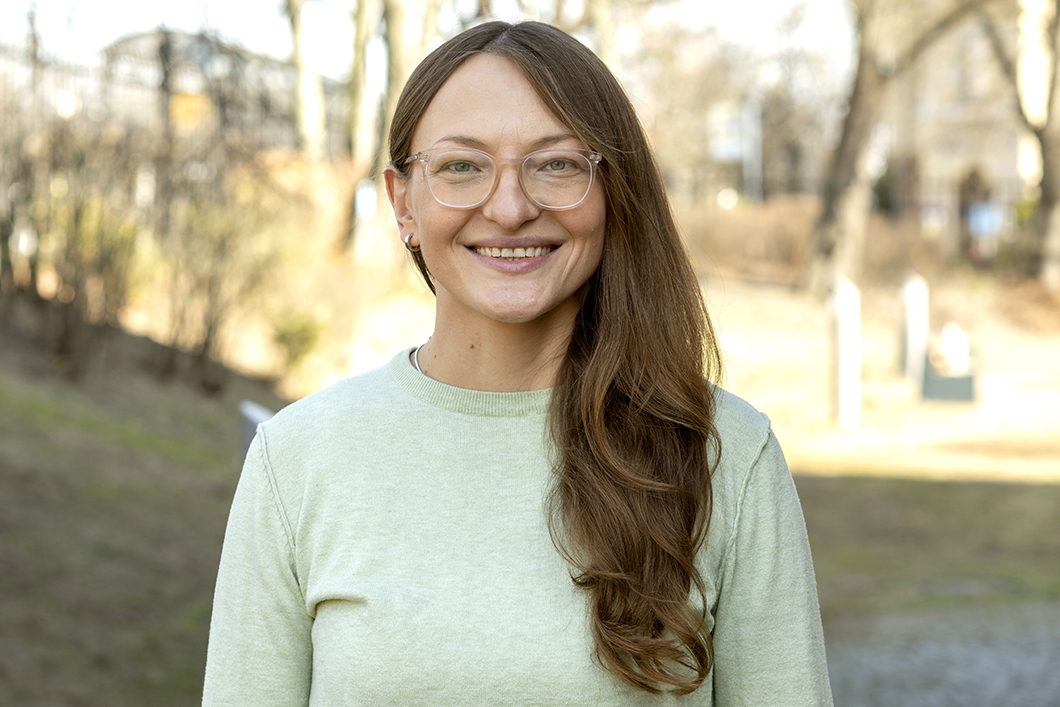
Dr. Julia Witt, Interfacial Processes and Corrosion Division
Source: BAM
Interview series "Introducing People@BAM"
Dr. Julia Witt, Interfacial Processes and Corrosion Division
Julia, tell us a little bit about yourself. What did you do in "your life before BAM"?
After completing my BSc and MSc studies in Chemistry at the Carl von Ossietzky University in Oldenburg, I started at the same university my doctoral research with a focus on surface science, nanotechnology and electrochemistry. Electrochemistry fascinates me because it comprises many fundamental aspects regarding interfaces. This also interconnects into other scientific fields which result in the development of applications that affect large scale industrial processes and consumer products. As a postdoc at BAM, I use microscopical and electrochemical techniques to investigate new materials and test their corrosive and electrocatalytic properties.
What inspired you to pursue a career in science? Do you have any role models and, if so, which ones?
I was always fascinated by scientists whose research led to important discoveries, and even today many new technologies and innovations are based on. Such is the case of the battery, which was first invented in 1800 by Alessandro Volta, who also discovered that chemical energy could be converted into electric energy. Today, batteries are still being intensively researched and developed.
Furthermore, I also met outstanding scientists during my studies who kept me excited about the fascinating world of chemistry and engineering.
What does your research focus on, and what excites you most about this topic?
My research focuses on the development and electrochemical characterization of high entropy alloys which is a new class of multiple-principle-element materials stabilized by large configurational entropy. This new material class is a real multi-talent. With their unique crystalline structure, these alloys have very promising properties that render them as promising materials for various energy storage and conversion systems. At the same time, they can be tuned for achieving mechanical properties and corrosion resistance, that go well beyond the currently available technical alloys. So, my research focusses on discovering the correlations between alloy composition, structure, and functional properties, either in electrocatalysis or as structural materials. For my investigations, I use a bunch of electrochemical techniques and a high-resolution atomic force microscope which is capable to examine materials under corrosive and mechanical stress simultaneously. Such experiments are really interesting as we can simulate coupled loading scenarios and elucidate damage mechanisms by watching them with a high resolution as they happen. I am really excited about my research as it contributes to solving current social problems such as climate protection and technical safety.
Why research at BAM? What do you like most about your work here?
I like the diversity in my workplace. All my colleagues have different backgrounds and characteristics, which also means that their skills, experiences, and abilities are different. This is great as we as a group benefit from having access to all these different perspectives and so we will be able to widen our experience and knowledge. This enables us to come up with more innovative and creative ideas.
Have there been any obstacles or challenges in your career so far? And if so, how did you overcome them?
The biggest challenge that we face as scientists are the high standards put upon us by the great ones that came before us, or the ones leading the different fields which keep raising the bar. The questions I have today as a postdoc are about my future and my profile as a scientist, such as “what do I need to do to keep my research current and relevant”. I always try to put away any self-doubt and be brave. For me, failure does not mean that you cannot do something, but rather that you should try again, with a different approach and by improving your concept.
What do you like to do when you’re not doing research?
I love cooking and travelling, combining both is something I enjoy a lot. Culinary travels are always very exciting as they often give me some of the best insights into new cultures.
If you should describe your job at BAM in one sentence – what would that be?
My job at BAM is to use the knowledge gained through detailed interface characterization for the design of metallic materials with improved functional properties.


